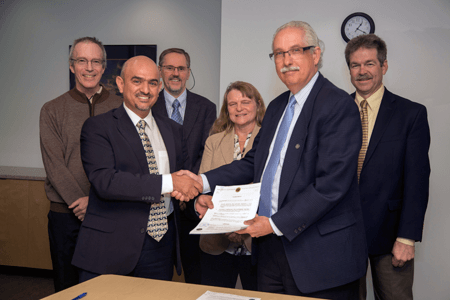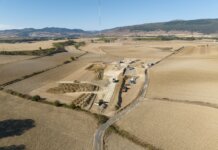Further expanding its work in renewable energy, the Boulder, Colo.-based National Center for Atmospheric Research (NCAR) is launching a three-year project to develop specialized forecasts for a major wind and solar energy facility in Kuwait.
According to NCAR, the $5.1 million project will focus on developing a system to provide detailed forecasts of wind and solar irradiance at Kuwait’s planned 2 GW Shagaya project. After NCAR develops the system, the technology will be transferred to the Kuwait Institute for Scientific Research (KISR) for day-to-day operations.
To help utility managers anticipate wind energy more reliably, NCAR designed a wind energy prediction system for Xcel Energy. The specialized system relies on a suite of tools, including highly detailed observations of atmospheric conditions, advanced computer modeling and artificial intelligence techniques that enable Xcel Energy to issue high-resolution forecasts for wind sites.
With funding from the U.S. Department of Energy, NCAR also led a national team of scientists who developed a solar forecasting system. The Sun4Cast system, unveiled last year, greatly improves predictions of clouds and other atmospheric conditions that influence the amount of energy generated by solar arrays, says NCAR.
In Kuwait, the NCAR team will build on these technologies to develop both wind and solar energy forecasts. The scientists will customize the system to predict dust storms that can blot out sunlight and damage wind turbines. They will also incorporate the influence of nearby mountain ranges and the Persian Gulf on local weather patterns.
“This is a great opportunity to do research into dust and other particulates, which we haven’t previously needed to focus on to this extent for wind and solar energy prediction,” says Sue Ellen Haupt, NCAR senior scientist and the principal investigator of the project. “This kind of work will pay multiple dividends for energy forecasting, as well as better understanding and predicting of weather in certain desert environments.”
Haupt and her team will collaborate with researchers at Pennsylvania State University and Solar Consulting Services in Florida, as well as with KISR.
NCAR says the forecasts will help Kuwait reach its goal of generating 15% of its energy from renewable sources by 2030.
Photo courtesy of NCAR: Salem Al-Hajraf of KISR and Antonio J. Busalacchi of UCAR shake hands over an agreement to create a renewable energy forecasting system.




